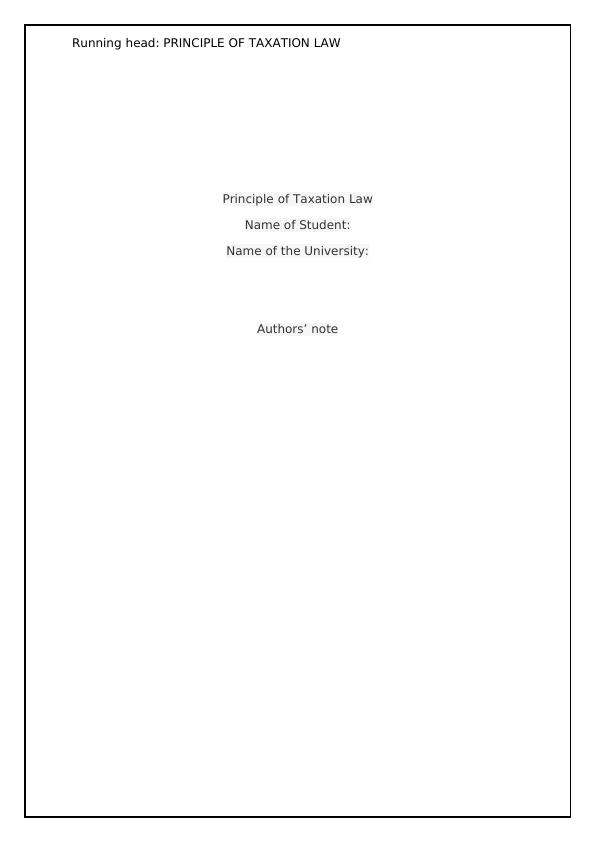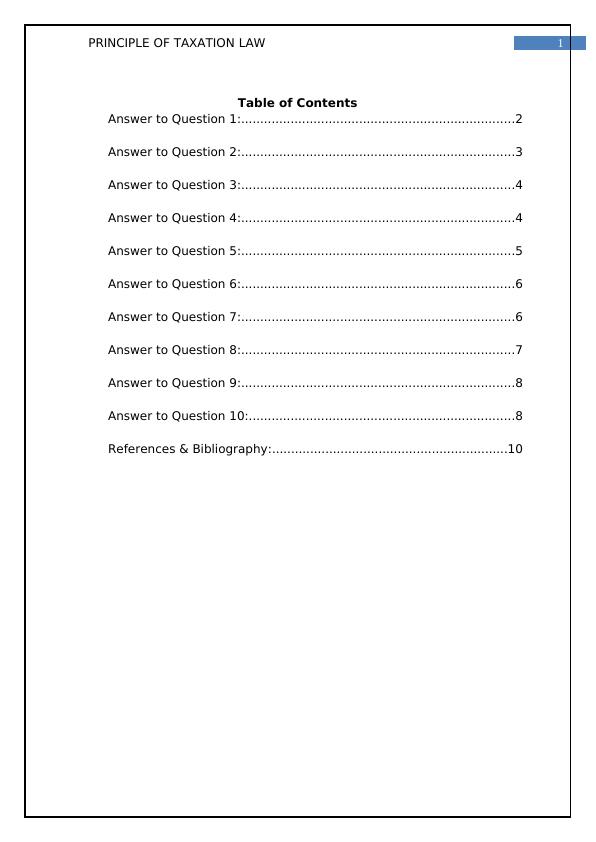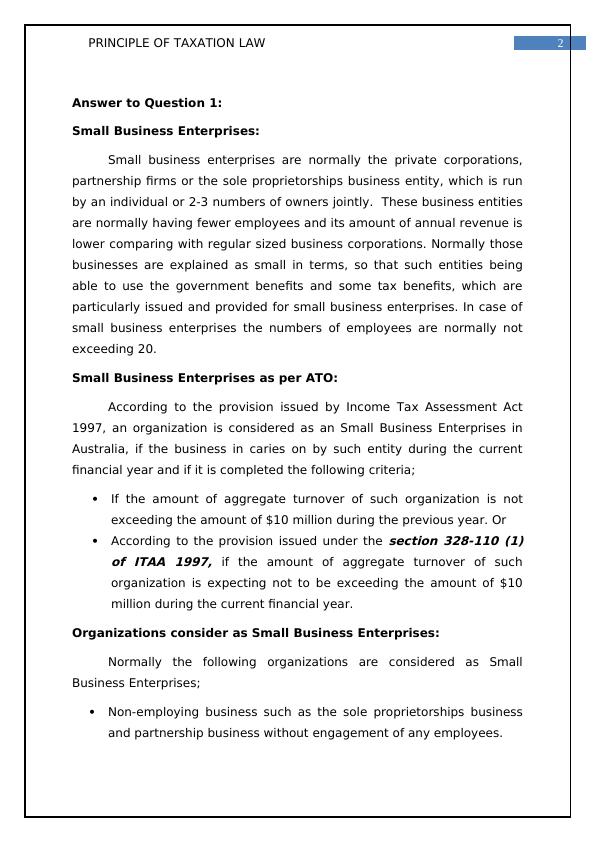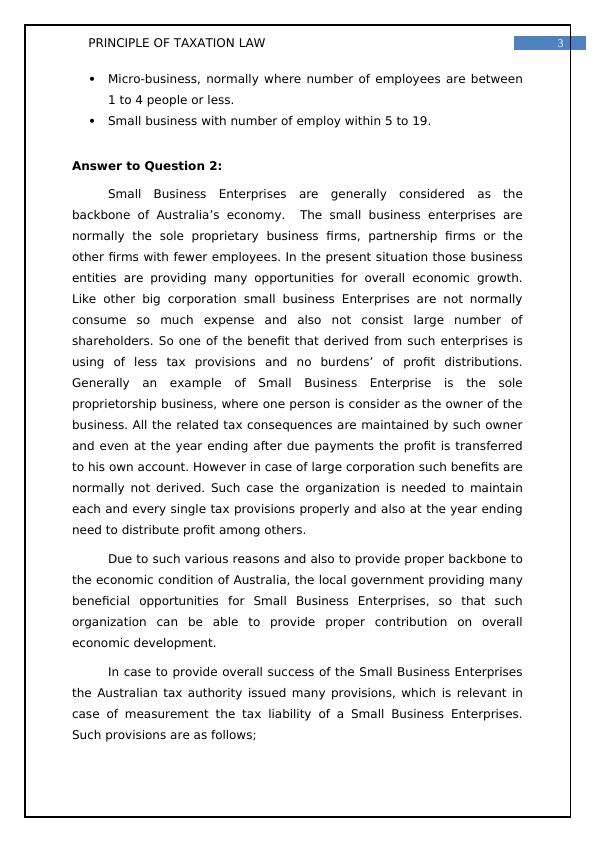Principle of Taxation Law
The assignment focuses on the tax concessions offered to businesses who qualify as a Small Business Entity (SBE). The purpose is to study and understand the definition and qualification criteria for being classified as an SBE.
14 Pages3569 Words467 Views
Added on 2022-11-09
About This Document
This document discusses small business enterprises, their definition, advantages, and tax planning. It also covers tax concessions and government policies for small businesses. The document includes answers to ten questions related to taxation law. Subject: Principle of Taxation Law, Course Code: 12
Principle of Taxation Law
The assignment focuses on the tax concessions offered to businesses who qualify as a Small Business Entity (SBE). The purpose is to study and understand the definition and qualification criteria for being classified as an SBE.
Added on 2022-11-09
ShareRelated Documents
End of preview
Want to access all the pages? Upload your documents or become a member.
Taxation Law: Small Business Entity Concessions and CGT Relief
|11
|2971
|72
Preparing and Administering Tax Documentation for Entities Name of the Student Name of the University Authors Note Course ID Assessment 1 - Written Test 2
|14
|2073
|133
Entrepreneurial Finance: Financial Principles and Ratio Analysis
|11
|2556
|59
Management Report: Types of Businesses, Organizational Structures, and PESTLE Analysis
|9
|2696
|58
MA613 Assignment on Environmental Taxation Law
|11
|2766
|61
Types of Companies: Characteristics and Impact on Business
|11
|3018
|84




